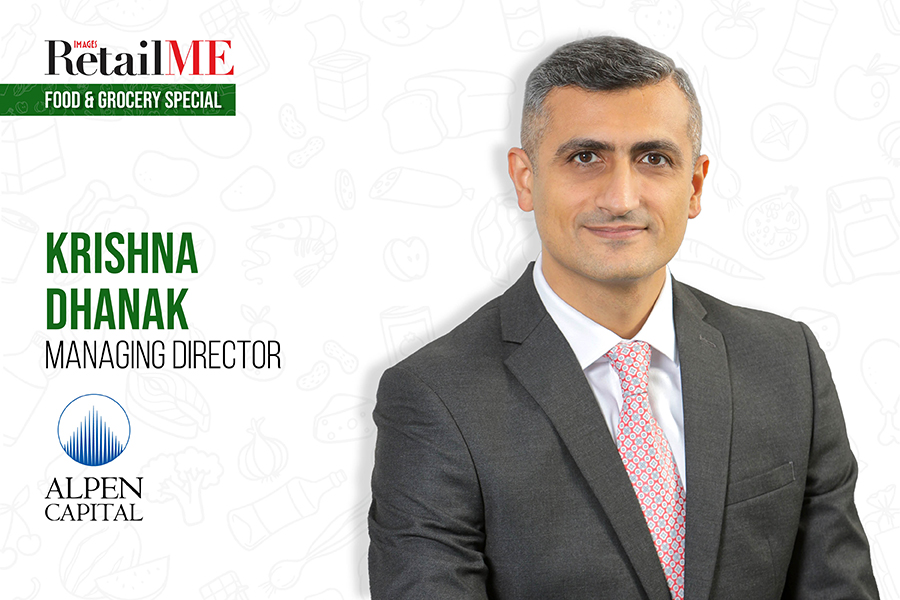
Krishna Dhanak, Managing Director, Alpen Capital
In an exclusive interview Krishna Dhanak, Managing Director, Alpen Capital shared insights on what the regional food & grocery landscape will look like in 2024.
Starting with trends that are expected to dominate the regional grocery retail landscape. Evolving consumer preferences and shifting attitudes in the post-pandemic era will continue to influence the grocery retail ecosystem in the GCC.
“The dynamic market developments in terms of price, speed and connectivity have accentuated the need for retailers to adopt omnichannel business models to remain competitive. As a result, retailers are improving their service and customer experience by launching digital platforms and mobile applications and collaborating with existing e-commerce marketplaces to push products through online channels,” Dhanak stated.
Further, growing awareness of lifestyle-related diseases such as diabetes, obesity etc. is driving a shift towards healthier eating habits among regional consumers.
“To support this demand, supermarkets and hypermarkets are focusing on offering a range of healthy food products and providing greater display space for organic and healthy food items. The growing demand for organic food is also reflected in the rise in the number of brands that have launched an organic range of products in recent years,” Dhanak observed.
Tech. Tech. Tech: The gamechanger
Asked about three areas that will act as gamechangers for the regional grocery retail landscape, Dhanak shared, “The three areas that we think will act as gamechangers going forward would be digital transformation, technological integration and enhanced consumer experience.”
Digital transformation has become a key enabler in the retail industry with platforms such as cloud computing, big data analytics, robotics, artificial intelligence (AI), machine learning (ML), virtual reality (VR) and augmented reality (AR) aiding a shift towards online shopping.
Integrating technology in day-to day operations is helping retailers streamline procedures, reduce costs, lower staff workloads and increase revenue generation potential.
To capitalise on consumer loyalty, widen customer base and provide a seamless one-stop shopping experience, operators are looking to differentiate their offerings by investing in omnichannel business models.
Elephant in the room?
Over 85% of the food requirement in the region is imported, exposing the GCC to global price fluctuations in case of supply chain disruptions, like those that occurred during the pandemic-imposed lockdowns.
“On-going geopolitical conflicts could potentially lead to supply chain disruptions causing inflation in food prices. This could push the price-conscious consumers to purchase products in lower volumes impacting the topline numbers of the operators,” Dhanak cautioned.
“Additionally, the rise in the number of international brands in the region has intensified competition within the retail market, pushing both domestic and international players to adopt aggressive promotional campaigns to drive revenues. Although such strategies increase top-line growth, they are likely to lead to margin pressures.”
The emergence of e-commerce as a preferred mode of shopping has also started adding pressure, especially on smaller retail players who are unable to compete with the large operators due to cost and expertise constraints. The burden of set-up costs coupled with transportation, warehousing and delivery charges amid a strained freight and logistics sector could add further stress on the operators, Dhanak concluded.
Pick up the February edition of IMAGES RetailME to read our annual Food & Grocery Report.